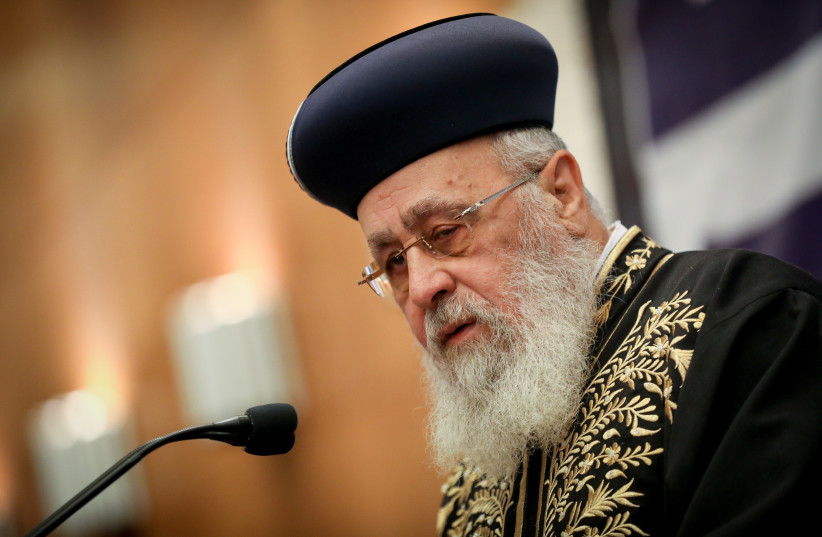There is something ironic in what is happening right now in Israel with the ultra-Orthodox and the government’s attempts to pass a new IDF draft law.
It is ironic because in the aftermath of the Hamas attacks on October 7 and the government’s failures to prevent them, there was a feeling not that long ago that this is what will bring down Prime Minister Benjamin Netanyahu’s government and lead to a new election. Instead, six months into the war, Netanyahu is climbing back up in the polls, and what seems more likely to topple his government is the standoff with his longtime allies, the haredim and the failure to agree on a new draft bill.
In other words, it is not the failures that led to the most Jews being slaughtered since the Holocaust that will bring down the government, but rather one of the age-old religion-state issues that have long plagued this country. Basically, no matter how hard consecutive governments tried to avoid this issue, it has always come back to haunt them.
And the reason is simple – the situation in Israel is unsustainable. It was unsustainable before October 7 and the war that ensued but it is even more ridiculous today, when a certain segment of society, for the most part, does not carry the same burden as others. This is not only unfair; it is unpractical, and it holds Israel back from being able to thrive and remain secure in the decades to come.
The issue though is not only about the inequality in military service. It is also in the way certain rabbis, who receive salaries from the state or whose institutions receive millions of shekels in government funding, actively incite against the country.

This is the case with Yitzhak Yosef, the chief rabbi, who called a few weeks ago for haredim to leave Israel if they are forced to enlist and continued with the leader of an extreme haredi faction – known as the Jerusalem Peleg – who said last week that he would rather have his 30 grandchildren be murdered by Arabs then have to go to the army where they could potentially emerge secular.
It seems there is something of a competition among haredi rabbis who can be more extreme. On Thursday, Rabbi Moshe Tzedaka, head of the Porat Yosef yeshiva in Jerusalem’s Old City, said that haredim are forbidden from serving in the IDF even if they are not studying in yeshiva, the supposed grounds for their exemption.
Yosef called for Israeli citizens to leave the country even though he receives a salary from Israeli taxpayers and Zedaka made his comment on Thursday even though his yeshiva receives 20% of its annual budget – more than NIS 2 million – from the state.
This makes no sense, and it has to end.
THIS SITUATION does not make any sense and it is time for it to end. From the beginning, this whole debate was somewhat pointless. There is a law on the books that obligates every 18-year-old male to serve in the IDF and the attempts over the years to legislate a special exemption for haredim have consistently failed exactly because everyone understands that it is not right.
The legislative efforts failed because the maximum the haredim are willing to give in the number of yeshiva students committed to drafting has never met the minimum of what the state or the courts can legally accept.
Now, in the aftermath of October 7, this has exacerbated due to the increased burden on the people who already serve and the growing shortage in soldiers overall. The IDF admits that it is short some 7,000 soldiers, and without new ones coming, the only option is to either extend the service of those already in uniform or call up reservists who have already served for months during this war and expect them to serve even more.
Both the haredim and Netanyahu know that this cannot continue. The question is whether they are willing to go all the way and break up the government over it. Netanyahu, obviously, does not want a new election which he fears will see Benny Gantz, who is leading in the polls, become prime minister.
And while the haredim might have an interest in a new election thinking that it will suspend the new draft bill from advancing, they are aware that the next government might be even harder on them. It could, for example, obligate every haredi young man to draft and also impose financial sanctions on institutions, like Porat Yosef, which do not send their students to the IDF.
What they do is a gamble that will determine the political future of the country. But there is a more important lesson from all of this: the haredi exemption has been an issue that Israel should have solved years ago. Each government kicked the can down the road and allowed it to continue until today when the hostility towards haredim is off the charts across Israel.
There was an alternative, one that would have required bold leadership and big decisions many years ago with tough steps that would have compelled haredim to take upon themselves a more prominent role in society.
But it is not the only issue that we, as a country, have allowed to grow disproportionately. If we have learned anything from October 7 it is that issues like these which we turn a blind eye to, do not go away. They need to be dealt with.
The writer is a senior fellow at the Jewish People Policy Institute (JPPI) and a former editor-in-chief of The Jerusalem Post.
